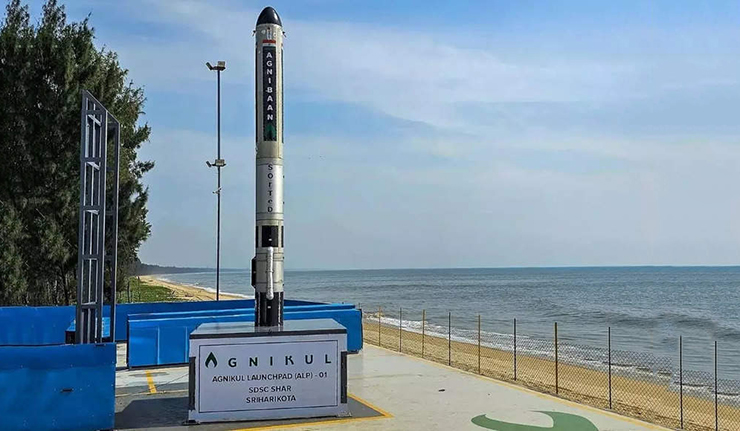
New Delhi: Agnikul Cosmos, an Indian spacetech startup has increased its total capital raised to date to $40 million as it raised Rs 200 crore ($26.7 million) in Series B funding. The funding round witnessed participation from investors such as Celesta Capital, rocketship.vc, Artha Venture Fund, Artha Select Fund, and Mayfield India, along with existing investors such as Pi Ventures and Speciale Invest. The funds will be utilised by the startup to scale its existing technology towards commercialisation, as well as invest in key facilities such as mobile launchpads and other test rigs necessary for addressing launch-on-demand customer needs.
The Co-founder and CEO of Agnikul Cosmos, Srinath Ravichandran said, “We have reached a stage where a significant portion of the risks associated with our developed technologies have been mitigated. We have a clear understanding of its functionality and effectiveness. Now, our focus is shifting from singular rocket launches to a strategic approach aimed at scaling. We’re considering how to scale not just for one or a few rocket launches, but for the next 25 or even 50 launches.”
Incubated at the Indian Institute of Technology, Madras Agnikul Cosmos was co-founded by Srinath Ravichandran and Moin SPM in 2017.
“Agnikul’s space solutions align with our investment focus on India’s leading-edge deeptech sectors. Their mission underscores the collaboration amongst the Indian Space Research Organisation, space regulators, and entrepreneurs in driving advancements within India’s space-tech ecosystem,” said Arun Kumar, Managing Partner at Celesta Capital speaking on the new investment.
Agnikul commenced the integration process of its cutting-edge launch vehicle, Agnibaan SOrTeD (SubOrbital Technological Demonstrator), with its private launchpad located at Satish Dhawan Space Centre (SDSC) SHAR at Sriharikota in August 2023. The vehicle was unveiled at Agnikul’s Mission Control Centre (AMCC) after being transported to the site. This achievement brings the company towards its inaugural controlled vertical ascent test, validating crucial technological foundations vital for complex orbital missions.
Capable of carrying up to 100 kg of payload to low Earth orbits up to 700 km, small satellite rocket Agnibaan has the capability for a plug-and-play engine configuration that is configurable to match the mission’s needs.
“Our immediate plan is to launch by the end of this year. Beyond that, our focus shifts towards achieving commercial scale operations, aiming for a cadence of at least one, or possibly two, launches per month. Beyond that, we will be working on a few technologies that will allow us to enhance our business model,” said Srinath.
Agnikul has secured a patent for its engine from the Government of India in 2022. The startup previously launched ‘Agnilet’, the world’s first single-piece 3D printed engine fully conceived and manufactured in India, successfully test-firing it in early 2021. The company also inaugurated its factory dedicated to end-to-end 3D printing of rocket engines last year, with a focus towards launch vehicle engine fabrication at scale. Additionally, Agnikul achieved the distinction of being the first company globally to design a rocket engine that can be 3D printed as a single, seamless piece of hardware.
According to Srinath, the fundraising landscape in the relatively new sector differs from established norms experienced by many founders. “The challenges and advantages persist, and I don’t foresee a significant shift in that regard. The industry tends to attract individuals with a particular mindset, not solely driven by conventional market trends,” he said and added that the investors interested in this sector typically possess a level of ‘tolerance and a risk appetite’ that allows them to navigate challenges and see beyond trends.
“This scaling presents a new set of challenges, especially in terms of manufacturing larger volumes and implementing robust systems for quality assurance, inventory management, and tracking. We aim to allocate the funds towards expanding our team, enhancing our processes and infrastructure, and investing in critical areas that will fuel us towards scalability,” remarked Srinath.








